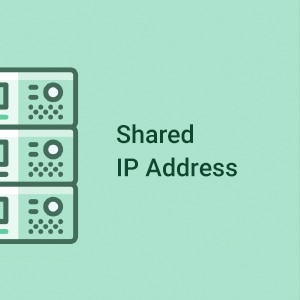VPN services assign you different types of IP addresses when you connect through and access the internet. An IP address is a unique numerical identifier assigned to any devices connected to the internet – used for communication purposes.
There are many types of IP addresses, but most VPN services offer two major types; Dedicated and Shared IP addresses
 专用 IP 地址
专用 IP 地址
A dedicated IP address, as the word suggests, is an IP address that is only exclusively assigned to the one used by the VPN service. This IP doesn’t change unless the user request for a new one. Mostly, this IP looks like a regular home IP address. Dedicated IPs are used for security purposes especially when accessing sites that only white list one IP address and you can be blocked if you access the sites using another IP.
 共享 IP 地址
共享 IP 地址
A shared IP address is the exact opposite of a dedicated IP address. This is the IP address most subscribers of a VPN service are assigned when they connect to the internet; many users are assigned the same IP -they share the same IP address when accessing the internet via the VPN. Shared IP addresses are best for privacy as it is hard to track the activities of an individual. Hence users get anonymity.
专用 IP 地址和共享 IP 地址的区别
The key differences between these two types of IP addresses can be narrowed down to privacy and security. Dedicated IP addresses are used by people concerned about the security of certain services – some services only require the allowed IP address, and if a shared IP address is used, they can be blocked due to issues such as spam attacks. Hence you’ll have to verify your identity every time you access the services. Shared IP addresses offer more privacy as they are harder to track as compared to a dedicated IP address.
专用 IP 的优势
- Same IP address – this is useful for services such as eBay, PayPal, and even Gmail. These services will reject your attempt to access their services if they detect a different IP address (this means a different geo-location). To proceed, you may be required to re-verify your account.
- 保证访问受 IP 限制的网络--与上述服务类似,企业也有防止未经授权访问其系统的机制。通常会实施白名单,最好的办法是使用一个 IP,即专用 IP 地址。
- 速度更快--专用 IP 地址不拥挤,与共享 IP 地址相比,通常能提供更快的速度。
- 没有 "坏邻居 "效应--您只需对自己的在线活动负责。
专用 IP 的缺点
- 与共享 IP 地址相比,专用 IP 价格昂贵
- 专用 IP 的私密性较差--使用专用 IP 总会让你显得与众不同,很容易被跟踪。
专用 IP 非常适合:
- 在线流媒体和游戏。
- Online banking and for services such as eBay and PayPal.
- 安全的远程访问
共享 IP 地址的优势
- 共享 IP 比专用 IP 便宜--维护共享 IP 的成本比专用 IP 便宜。因此,用户也能从中获益。
- Guarantees privacy and anonymity – It’s hard to track and single out a user in a shared IP address environment. This makes shared IPs great for doing activities that require privacy.
共享 IP 地址的缺点
- 坏邻居效应--由于大多数用户共享同一个 IP 地址,你不知道其他用户在网上进行了什么活动。他们可能会决定从事非法活动。在 Google 等服务中使用共享 IP,我们会认为是垃圾邮件攻击,并要求您重新验证账户。
- 由于坏邻居效应,共享 IP 地址很容易被列入黑名单和屏蔽。
- Prone to hacking/spoofing attempts.
共享 IP 非常适合:
- 在线流媒体。
- 下载 Torrents。
- 解除对地域限制内容的屏蔽。

 专用 IP 地址
专用 IP 地址 共享 IP 地址
共享 IP 地址

